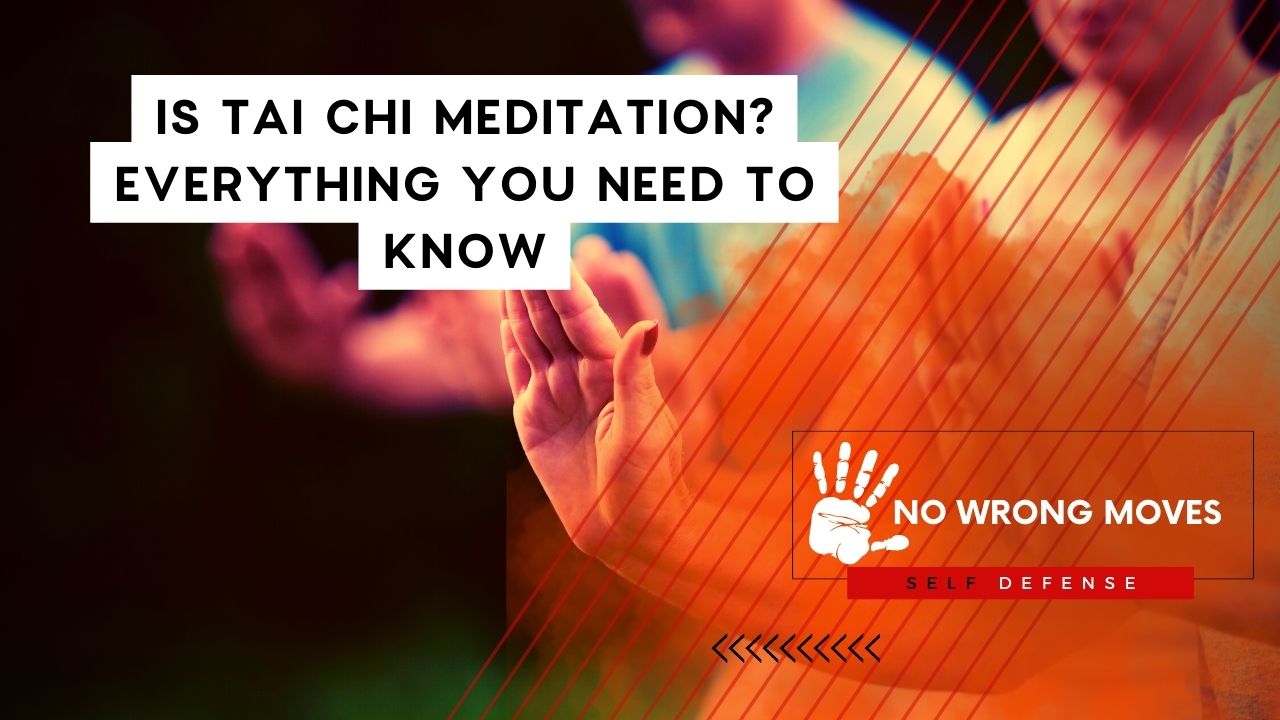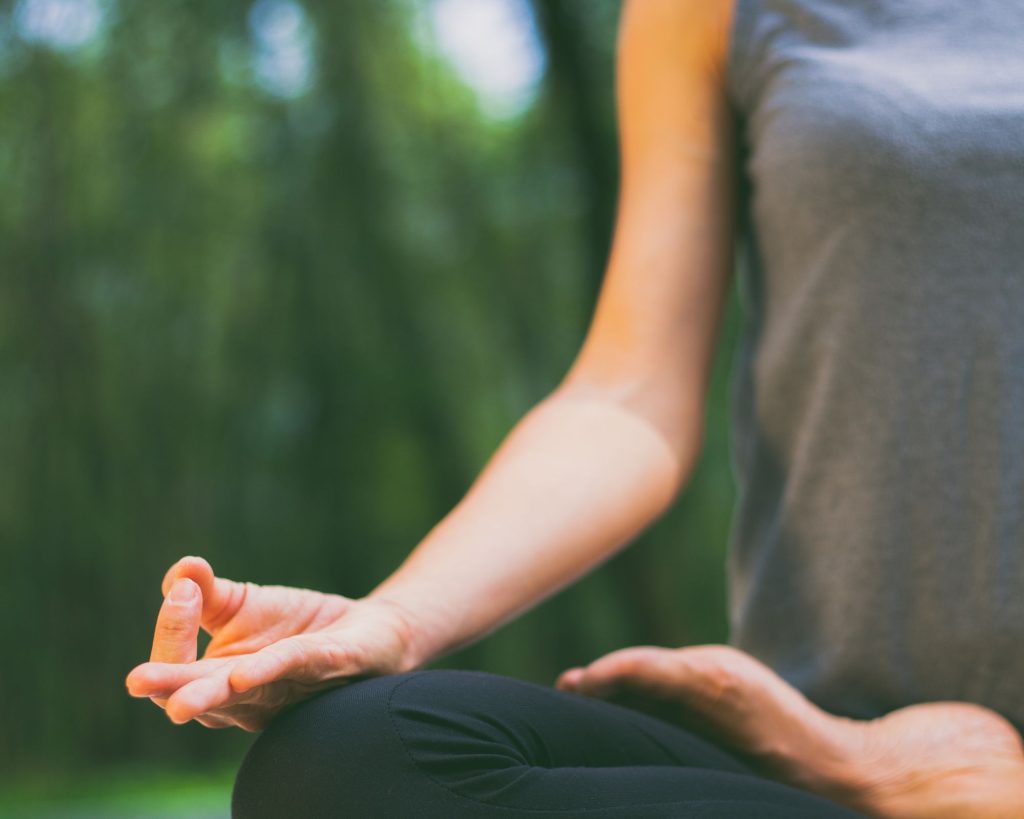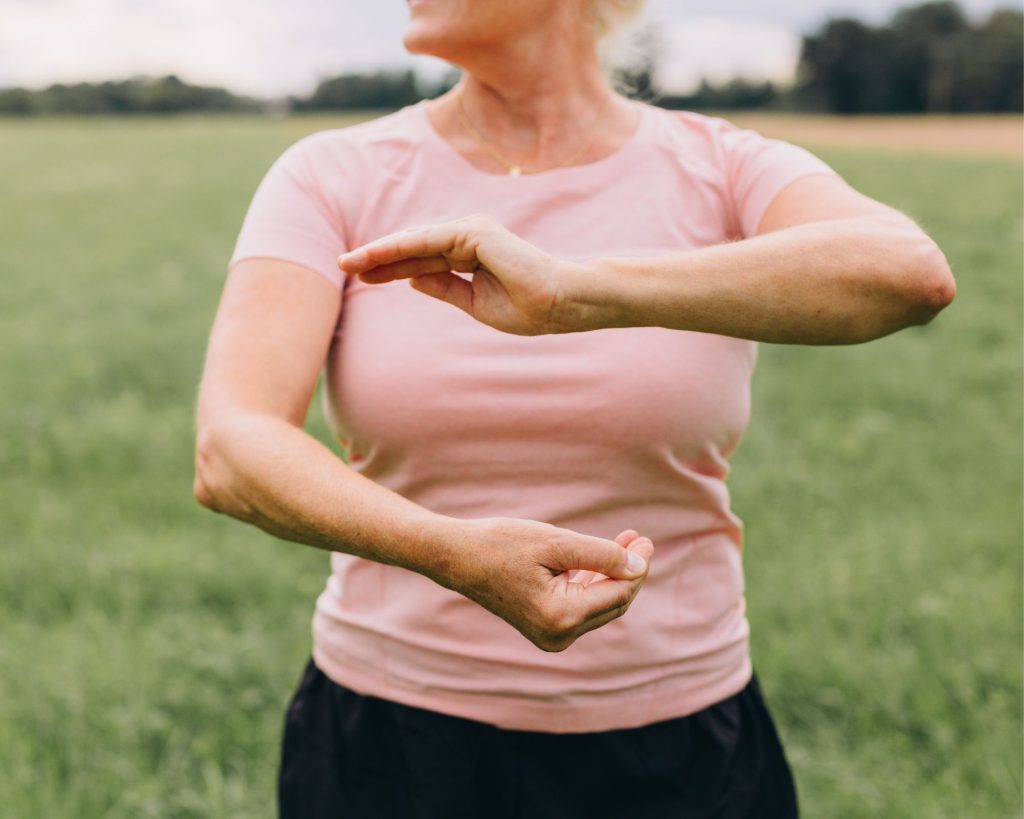
Is tai chi meditation? That's a fair question to ask, since we're constantly searching for ways to improve our physical and mental well-being. It's always a goal of ours to be as happy and healthy as possible.
Thankfully, tai is known to do just that. Originating from ancient China, tai chi is a form of martial arts that combines slow, gentle movements with deep breathing and meditation.
While many people know tai chi as a physical exercise, there is much more to this ancient practice than meets the eye. Today, we'll be looking at this wonderful martial art, as well as what you can benefit from it!
Is Tai Chi Meditation?

Tai chi is a form of Chinese martial arts and meditation that has been practiced for centuries. It is a mind-and-body practice that combines slow, graceful movements with meditation, breathing, and relaxation techniques.
The practice is known for its health benefits, such as increased flexibility, balance, and overall physical and mental wellbeing.
But the question is still definitely worth asking, is tai chi meditation?
Don't worry, the answer is a resounding yes! Tai chi is a form of meditation, and has been practiced as that for over a thousand years in China.
It's known as a meditative practice that incorporates both physical and mental aspects. It combines slow, gentle movements and mental focus to create a state of relaxation and awareness.
Unveiling the Mystery of Tai Chi Meditation

Tai chi is a form of martial arts, but it is also a way of life. It is a practice of balance and harmony between the mind, body, and spirit. It is a spiritual practice that encourages self-awareness, relaxation, and inner peace.
The practice of tai chi is based on the principle of yin and yang—the balancing of opposites, helping you to connect with nature.
It's primarily focused on mental and physical development, but the practice also encourages the practitioner to look inward and explore their inner landscape.
The martial art is also traditionally practiced as a series of gentle movements that are designed to be performed slowly and smoothly. They're designed to help you focus your attention on the present moment and to be aware of your breath and body.
This awareness should help you to cultivate a sense of calmness and relaxation.
Exploring the Benefits of Tai Chi as a Meditation Practice

Tai Chi is a practice that has many benefits, both physical and mental. It has been used to help alleviate stress, reduce anxiety, and improve flexibility, balance, and coordination.
It has also been found to help cope with symptoms of depression and improve peoples' overall psychological well-being. It isn't a wonder pill for happiness, of course, but it's pretty darn great for keeping you in a good mood.
Another great thing is that it's known to help promote balance and harmony between the body and mind. By combining the physical and mental aspects of the practice, practitioners can become more aware of both.
This awareness can help to reduce stress and anxiety, as well as improve mental focus and clarity.
And like we already established, this also paves the way for mindfulness, inner peace, and calmness. This, in turn, will reduce any harmful symptoms of depression, anxiety, and other mental health conditions that practitioners may be facing.
Gaining Insight Into the Benefits of Tai Chi Meditation

You're curious about a martial art that gets you both physical and mental benefits? Well, you've got tai chi to help you with that.
In addition to improving physical health, such as flexibility and balance, it also has firm mental benefits. And we don't just mean feeling happier and healthier, no--if you practice tai chi, expect vastly improved mental clarity and focus.
The practice of tai chi can also help practitioners to cultivate self-awareness and inner peace. By being mindful of the body and breath, the practitioner can become more aware of their physical and mental state and become better able to control their reactions.
This will help them to be more, as the popular adage goes, "present in the moment," and overall much less reactive to outside stimuli.
By fostering a sense of inner peace, practitioners can feel much more connected to their inner self and the world around them.
Understanding the Ancient Origins of Tai Chi

Tai chi is old. And we mean seriously old! When you've got newcomers around the block, like BJJ or MMA, that have risen to prominence despite barely being a hundred years old, it's easy to forget some of the earliest, most fundamental martial arts.
So how old is it really? Well, it's an ancient Chinese practice that has been around for over a thousand years. Rough estimates go for about 700 to 1,500 years ago.
It was originally developed as a martial art, yes, but it has since evolved into a practice that incorporates physical, mental, and spiritual aspects.
The martial art was developed by ancient monks, who used it as a means to promote balance and harmony between the body, mind, and spirit.
The practice of Tai Chi is often seen as a form of moving meditation, as it combines slow, graceful movements with breathing and relaxation techniques. It is a practice that can be used to reduce stress, improve flexibility, balance, and overall mental and physical wellbeing.
Discovering the Art of Moving Meditation

Tai chi's movements aren't designed for quick succession. They're supposed to be slow and elegant, combining meditation and breathing techniques to create a state of relaxation and awareness. This combination of physical and mental aspects helps to create a meditative state.
You may be interested to know that this practice has been shown to have a positive impact on a variety of health conditions.
For example, research has found that it can help improve bone density and reduce the risk of falls in people with osteoporosis. It's also been shown to improve balance and reduce the risk of developing Parkinson's disease.
When it comes to the specific type of moving tai chi meditation class you may be interested in, it's worth noting that there are a variety of different approaches available.
Some classes may be more like a traditional class, with an instructor helping out their students. Others may be quieter, requiring intense focus and concentration, with learning being done more through observation.
Conclusion

So to sum it all up, tai chi is a practice that has many benefits, both physical and mental. The practice can help reduce stress and anxiety, improve flexibility, balance, and coordination, and better cope with symptoms of depression.
It is an ancient practice that has been used to promote balance and harmony between the body, mind, and spirit. And by better understanding it and practicing it to the best of their abilities, practitioners can unlock its secrets and experience the power of mindful movement.
You've learned about tai chi. Why not check out a bit about iaido here?
[author-box-jpx-fitness]
